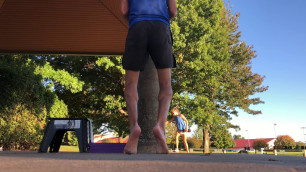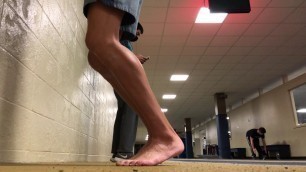

'Diving Opal and Agincourt reefs out of Port Douglas. Diving with Blue Dive on board, Poseidon, Aqua-quest and Calypso. Videography + Editing - Zachary Penman Music - PORT_AUTHORITY - Mousse “For most of history, man has had to fight nature to survive; in this century he is beginning to realize that, in order to survive, he must protect it.” - Jacques Yves Cousteau The Great Barrier reef is the single most impressive structure built by any species… ever. It is over 2600km long and visible from space. It’s made up of 3000 individual reefs and 900 islands. If anywhere deserves the title of a natural wonder of the world, the Great Barrier Reef is it. Home to over 1500 species of fish, 500 species of hard corals and countless numbers of endangered species, it is a hot spot for life. At over 20 million years old this ecosystem is a relic of the past and an indicator of our future. In the last 20 years 50% of the corals which make up the reefs have bleached to the point of death. This year the Great Barrier Reef Marine Parks Authority released a reef outlook report in which they downgraded the reefs outlook for the coming decade from ‘poor’ to ‘very poor’. In as little as 10 years the once Great Barrier Reef could be reduced to nothing more than some coral rubble and a lifeless reminder that we did nothing to prevent the loss of such a diverse and unique ecosystem. Mankind has probably done more damage to the Earth in the 20th century than in all of previous human history. -Jacques Yves Cousteau There are many factors influencing the decay of the reef; overfishing, plastic and nutrient pollution, commercial and historic removal of natural filters (Mangroves and sea cucumbers), tourism, sedimentation, shark control programs, crown of thorns starfish outbreaks, but the most imminent and urgent issue of all is climate change. The 2016/17 back to back mass bleaching events can be attributed to the ocean warming caused by climate change. The 2017 category 5 cyclone which destroyed 70-98% of the corals in the Whitsunday islands, the result of harsher more unpredictable cyclones bought on by climate change. Climate change if not bought under control will be the death of all coral reef ecosystems. I’ve been asked many times how the corals dying is actually going to affect the rest of the reefs inhabitants, and it is unfortunately a very sad storey. All fish, invertebrates, sharks, and seabirds rely on the corals. The corals are the base of this ecosystem, they are the main source of food and habitat in the coral seas. Without the corals it will be a lifeless tropical ocean. Coral are extraordinary creatures, they are an animal and a plant that can also produce a mineral skeleton. The animal is referred to as a polyp and a large coral structure may contain billions of these tiny animals. Inside the cells of the polyp lives a macroscopic plant, most commonly zooxanthellae, which is able to harvest energy from the sun to feed the coral animal. This energy from the sun in turn provides food for every other stage of the food chain in the reef both directly and indirectly. Corals like every creature have a thermal tolerance They can tolerate the cold waters of winter, and historically the warm waters of summer. However, since the 1970s the warm peaks have gotten warmer and warmer. Sea surface temperatures around 28-30 degrees celsius cause corals to become stressed. When corals are stressed they expel the tiny algae they rely on to feed and if the waters don’t cool down within a month of this happening all of these tiny animals starve to death.'
Tags: Shark , great barrier reef , fish , climate change , sea turtle , Port Douglas , marine conservation , Blue Dive , Agincourt reef , Opal Reef
See also:

















comments